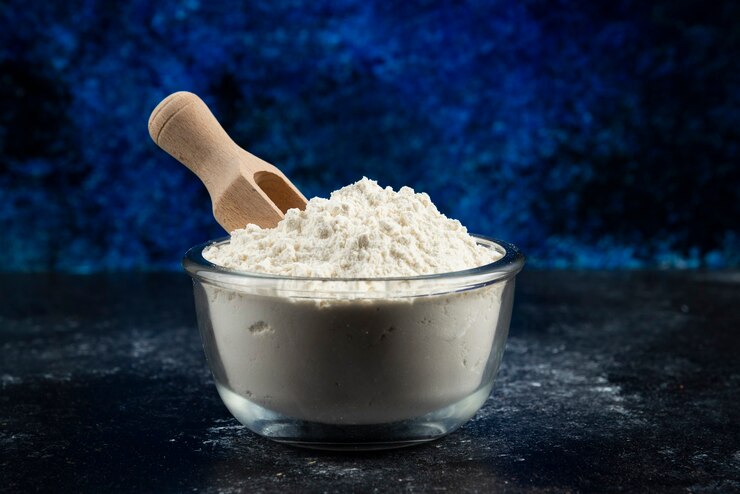Creatine Hydrochloride (HCL) is a popular supplement among athletes and fitness enthusiasts. Known for its high solubility and superior absorption rate, Creatine HCL is derived by bonding creatine with hydrochloric acid. This form is believed to address many of the issues associated with traditional creatine monohydrate, such as water retention and bloating.
How Creatine HCL Works
Creatine HCL, like other forms of creatine, serves as a phosphagen to support ATP production, the energy currency of the body. During high-intensity exercise, ATP depletes quickly, and the body relies on phosphocreatine to replenish ATP stores. Supplementing with Creatine HCL increases the body’s total creatine pool, enhancing muscle strength, power output, and endurance.
Benefits of Creatine HCL
1. Enhanced Solubility and Absorption
- High Water Solubility: Creatine HCL is significantly more soluble in water compared to creatine monohydrate. This characteristic allows it to dissolve more easily in liquids, facilitating better absorption in the body.
- Reduced Dosage: Due to its enhanced absorption, users can consume lower doses of Creatine HCL (usually 1-2 grams per serving) to achieve the same benefits as higher doses of creatine monohydrate.
2. Reduced Water Retention and Bloating
- Minimal Water Retention: One of the common complaints with creatine monohydrate is water retention, leading to a “bloated” feeling. Creatine HCL minimizes this side effect, making it a preferred choice for those looking to avoid unnecessary water weight gain.
- No Loading Phase Required: Unlike creatine monohydrate, Creatine HCL doesn’t require a loading phase, simplifying supplementation routines.
3. Improved Muscle Strength and Performance
- Enhanced Strength and Power: Supplementing with Creatine HCL can lead to increased muscle strength and power, particularly beneficial for athletes involved in high-intensity sports or weightlifting.
- Better Endurance: Creatine HCL helps improve endurance in activities requiring short bursts of intense effort, such as sprinting, jumping, or resistance training.
Creatine HCL vs. Creatine Monohydrate
1. Solubility and Absorption
- Creatine HCL is more soluble in water, resulting in faster and more efficient absorption. In contrast, creatine monohydrate is less soluble and may require higher doses.
2. Dosage
- The typical dose of Creatine HCL is 1-2 grams, compared to the standard 5 grams of creatine monohydrate. This lower dose can reduce the potential for gastrointestinal discomfort.
3. Side Effects
- Creatine Monohydrate: Known for potential side effects like bloating, water retention, and digestive discomfort.
- Creatine HCL: Users often report fewer side effects, making it more suitable for individuals sensitive to the bloating or digestive issues caused by creatine monohydrate.
How to Use Creatine HCL
1. Dosage Recommendations
- A common dosage is 1-2 grams per day, taken with water or juice. Unlike creatine monohydrate, no loading phase is needed.
- It is typically consumed pre-workout, but some users prefer taking it post-workout for recovery benefits.
2. Cycling and Consistency
- Although cycling is not mandatory, some athletes prefer to cycle creatine supplementation (e.g., using it for 8 weeks, then taking 4 weeks off) to maintain its effectiveness.
- Consistent daily intake, regardless of workout days, is recommended to sustain elevated muscle creatine levels.
Potential Side Effects and Considerations
1. Gastrointestinal Issues
- While Creatine HCL is generally well-tolerated, taking excessive doses might lead to gastrointestinal discomfort, such as cramping or diarrhea.
2. Hydration
- Proper hydration is crucial when supplementing with Creatine HCL, as creatine draws water into muscle cells. Drink adequate water throughout the day to prevent dehydration.
3. Long-Term Safety
- Numerous studies support the long-term safety of creatine supplementation, including Creatine HCL. However, those with pre-existing kidney conditions should consult a healthcare professional before starting any creatine regimen.
Choosing a Quality Creatine HCL Supplement
When selecting a Creatine HCL supplement, consider the following factors:
- Purity: Look for supplements that list Creatine HCL as the primary or sole ingredient without unnecessary fillers or additives.
- Third-Party Testing: Opt for products tested by third-party organizations to ensure quality, potency, and safety.
- Reputable Brand: Choose a supplement from a trusted manufacturer with a history of quality assurance and customer satisfaction.
Frequently Asked Questions (FAQs)
1. Is Creatine HCL safe for long-term use?
- Yes, creatine supplementation, including Creatine HCL, has been extensively studied and is considered safe for long-term use in healthy individuals. It’s always best to consult with a healthcare professional if you have underlying health conditions.
2. Can Creatine HCL cause kidney damage?
- Current research does not support the claim that creatine damages kidneys in healthy individuals. However, those with pre-existing kidney conditions should consult a healthcare provider before using creatine.
3. Is it necessary to take Creatine HCL with a loading phase?
- No, Creatine HCL does not require a loading phase. Its high absorption rate means you can start with the recommended daily dose of 1-2 grams.
4. What is the best time to take Creatine HCL?
- The timing is flexible. Many athletes prefer taking it pre-workout for enhanced performance, while others take it post-workout to aid recovery. The key is consistent daily intake.
Conclusion
Creatine HCL is an effective supplement for those seeking to improve muscle strength, power, and endurance while minimizing side effects like bloating and water retention. Its enhanced solubility allows for smaller doses and efficient absorption, making it a convenient alternative to traditional creatine monohydrate.
By incorporating Creatine HCL into a balanced fitness routine, users can potentially experience faster recovery, increased strength, and better performance in high-intensity workouts. However, as with any supplement, it’s essential to use it responsibly, maintain adequate hydration, and consult a healthcare professional if there are any health concerns.


